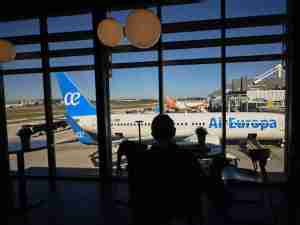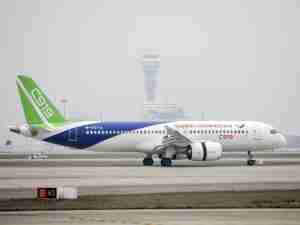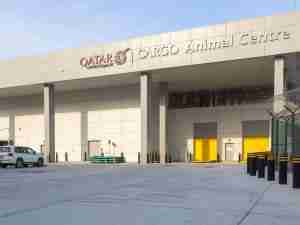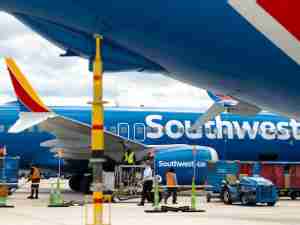Boeing Defuses Feud With Top Supplier as GE Alumni Reach Deal
By: | Aug 02 2017 at 04:52 PM | Air Cargo
Two former General Electric Co. colleagues turned sparring partners are close to unraveling aerospace’s Gordian knot: a sprawling, four-year industrial dispute that touches every Boeing Co. commercial jet.
Now on opposing sides, Kevin McAllister and Tom Gentile spearheaded talks that over the past few days broke a contract deadlock pitting Boeing against Spirit AeroSystems Holdings Inc., a supplier that used to be part of the Chicago-based planemaker. Spirit surged to a record on news of the tentative pact, which may lead to an even closer tie between the companies.
“The deal with Boeing removes a cloud that has been hanging over Spirit for some time,” Rob Stallard, an analyst at Vertical Research Partners, said in a note to clients. “Boeing has been menacing suppliers across the globe, and with such a large revenue exposure (80%), Spirit looked vulnerable.”
The resolution, reached after the two executives publicly locked horns earlier this year, was characteristic of the old teammates. McAllister, 54, and Gentile, 53, built a reputation as creative dealmakers at GE Aviation, where they had offices down the hall from each other. They worked so closely selling GE’s jet engines and service deals to airlines that Gentile later quipped they were “joined at the hip.”
The stakes could hardly be higher. Boeing needs an agreement that will tamp down costs on the 737 Max, a crucial source of revenue, and help it avoid writing down a portion of the 787 Dreamliner’s $26.5 billion production losses. For Spirit, which Gentile now leads, the talks will be crucial in determining the company’s financial health, share price and role on Boeing’s next likely jetliner, dubbed the 797.
“I do know Tom Gentile really well, and I think a lot of him,” McAllister, who runs Boeing’s $65 billion commercial airplanes division, said when asked about the dispute during a June briefing. “He’s a terrific leader. We’ve made progress in some areas of this negotiation. We have a few pockets where we’re still not there yet. But I can tell you there’s a whole lot of energy on it from both sides of the equation.”
Stock Surge
Spirit soared a record 18 percent to $71.72 at the close in New York, after revealing a memorandum of understanding with Boeing to replace long-expired contracts to provide airframe parts and assemblies.
The companies still need to agree on final wording, and the deal would extend Spirit’s losses on a key program for both companies: the carbon composite 787 Dreamliner. Even so, the agreement removes the lingering uncertainty that had weighed on Wichita, Kansas-based Spirit after Gentile in May bluntly warned analysts that the impasse might wind up in court.
Talks gained a new urgency after that salvo, Gentile told analysts during a Wednesday earnings call. The agreement reached in recent days is highly complicated with about 13 or 14 elements stretching far beyond pricing, he said.
Boeing will share some of the cost-saving expertise it borrowed from Toyota Motor Corp.’s production system, for example, while Spirit forgoes the generous payments that were intended to help it succeed as a standalone company.
“Just like a young adult gets a job and moves out of the parent’s basement, that’s how we view this,” Gentile quipped of the decision to embrace industry-standard payments.
The standoff had involved agreements struck a dozen years ago, when the planemaker spun off Boeing Wichita to a private equity firm. One set of contracts cemented Spirit’s exclusive status for Boeing jets from the long-haul 747 jumbo to the lucrative 737 narrow-body. Another set terms for the initial 787 Dreamliner model through 2021.
Seeking Discounts
The contracts lapsed in May 2013 as Boeing started pressuring suppliers for discounts following the Dreamliner’s costly, tardy debut. Since the end of 2015, the companies have relied on temporary prices, agreeing to settle up once a final contract is in place.
“What’s fundamental is that Boeing wants to do better than its suppliers,” aviation consultant Richard Aboulafia said of the planemaker’s reputation for driving hard bargains. “Then there is the big gorilla in the corner, the single biggest cash machine: the 737.”
The toughest issues involved pricing for new models that didn’t exist when the original deal was struck, such as the 737 Max and two largest Dreamliner variants. Spirit assembles about 70 percent of the 737 and agreed to volume discounts as output spikes over the next two years.
The new framework sets a series of pricing discounts, known as step-downs, that kick in at predetermined points on the 787-9 and -10 programs. Doing so will bring Spirit’s Dreamliner losses to nearly $1 billion, but Boeing has agreed to help it find ways to trim costs. The 787 savings are crucial for Boeing as it works to erase the mountain of production losses and avoid an accounting charge.
New Jobs
The men spearheading the talks are relative newcomers to their companies. Both were hired last year. At GE, they pioneered the joint sale of service agreements and engines to low-cost carriers bursting onto the scene from Asia to Europe.
“We were joined at the hip for many years working together at GE Aviation,” Gentile said at a February conference. He described a “strong relationship” where McAllister and he could still “pick up the phone and talk.”
The two men are a study in contrasts. “McAllister is smart and gregarious, a good guy focused on getting deals done. I’ve never gotten the sense from McAllister that it’s a zero-sum game,” said Ray Sisson, CEO of lessor AVi8 Air Capital, who worked with both executives last decade as a senior vice president at GE Capital Aviation Services. “Tom is quieter, more thoughtful, very direct.”
As head of the $11.4 billion services division from 2008 to 2011, Gentile mended fences with airlines that operated their own engine shops by offering more flexible contracts and forging services alliances, said Rick Kennedy, a spokesman for GE Aviation. As Gentile moved on to GE Healthcare and then was named president of GE Capital, McAllister stepped into the services post.
McAllister is a data hound, a little rumpled, sometimes profane and popular with former customers like Tony Fernandes. The AirAsia BHD. Group CEO recalled McAllister’s dealmaking prowess when the budget carrier was deciding between engines made by Pratt & Whitney and a GE-Safran venture. The talks—leavened by banter—stretched over a series of meetings culminating in a helicopter ride with Jeffrey Immelt, the CEO of GE at the time.
“I said ‘I can’t sign this deal,”’ Fernandes recalled in an interview, “So Kevin said I should jump out of the helicopter now.”
They reached an agreement while still airborne. “We got a good deal. We worked hard,” Fernandes added.











